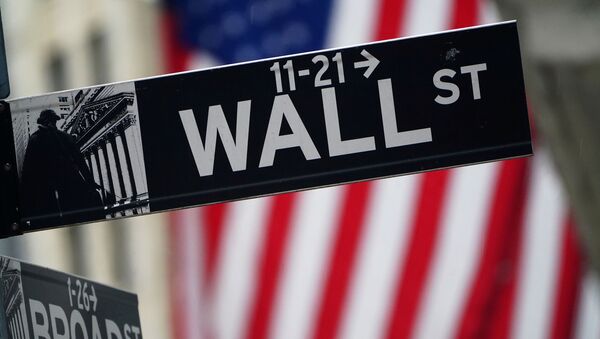Senior members of US President Donald Trump's economic team privately met with board members of the Hoover Institution think tank on February 24 to discuss the effects of the virus on the American economy, the New York Times reported. One day later, Larry Kudlow, the director of the National Economic Council, told Hoover Institution members that although the virus in the US was contained at the time, “we just don’t know” about the future.
Earlier that day, however, Kudlow told the American people on CNBC that the virus was contained in the US, saying it was “pretty close to airtight.”
Rall, who is also a columnist, told Political Misfits hosts Michelle Witte and Bob Schlehuber on Thursday that the details kept from the American public is reason enough to call for most meetings to be open to the masses.
“The elites are different from you and me. They get insider information, and we don’t,” Rall said. “They think we don’t deserve to know what’s going on … I have long believed there should be no such thing as a private meeting in government. Every single meeting should be public unless it’s very top national security kind of concern, once in a blue moon … and this is why.”
“It reminds me a lot of the behavior of the Wall Street banks during the 2007-2009 meltdown, where the CEOs of big banks and insurance companies were telling the public and their employees that there was nothing to worry about … when at the same time, they were, of course, personally short-selling or dumping their portfolios wholesale and heading for the hills. And they knew the truth, which was they were in big trouble,” Rall added.
The Times also obtained access to a document written by a hedge fund consultant who was at the three-day meeting of Hoover’s board.
“What struck me,” the consultant wrote, according to the Times, was that almost every official he heard from spoke of the virus “as a point of concern, totally unprovoked.” Interviews with people who received copies of the consultant’s document or were briefed on parts of it revealed that investors in New York and other elite traders had information from the administration as early as February that company stock prices would soon fall. Some investors started stocking up on essential household items, while others strategically altered their investment trading.
“It’s fraud … it should be illegal. It’s disgusting, reprehensible behavior, and it happens all the time. They really should be a codification in our culture and in law that makes this punishable by jail time,” Rall argued.
“So far, the rich are having one hell of a run,” he added.


